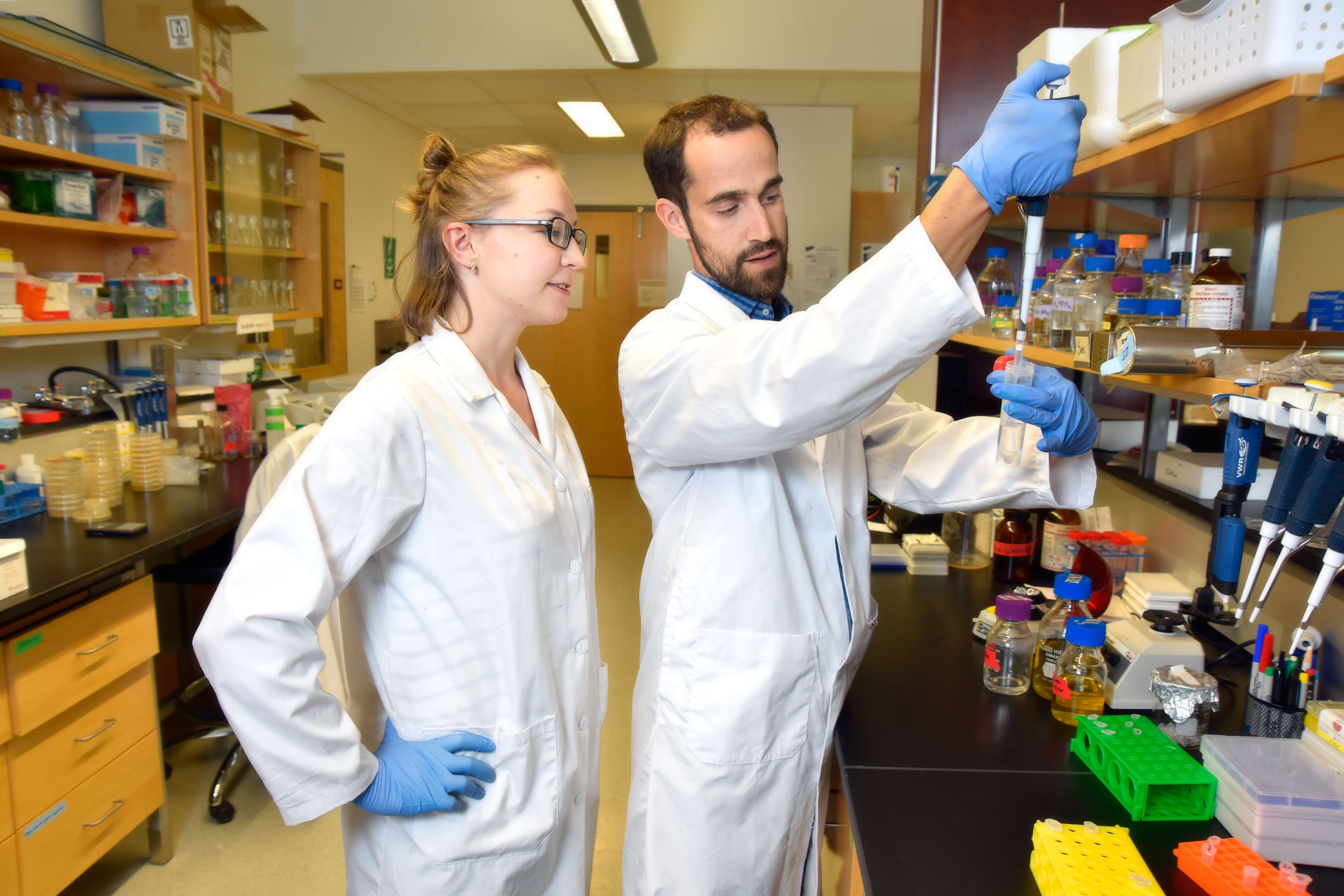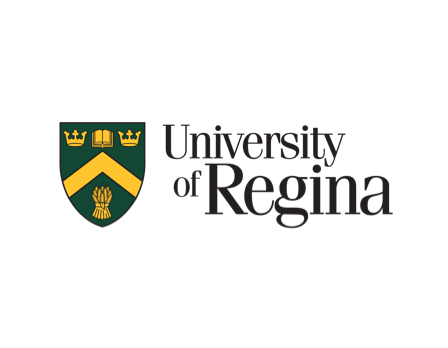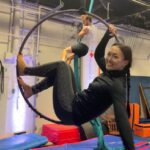Do you want to change the world through science? The advancement of knowledge begins with first-class scientific training, allowing aspiring researchers and scientists to apply problem-solving and critical thinking skills to pursue new knowledge. The Faculty of Science at the University of Regina provides all this and more.
The Faculty of Science at the University of Regina is situated in the heart of the Canadian prairies on Treaty 4 territory and the homeland of the Métis people. It is a vibrant community comprising six departments, two satellite institutions, and one regional centre for mitochondrial research.
Here, almost 1,800 undergraduate and graduate students work towards bachelors, masters, and doctoral degrees while discovering their way to scientific success. Alongside world-class researchers, everyone has a role to play in changing the world.
Work conducted in the Babu Lab is a prime example. Babu Lab group leader Dr. Khaled A. Aly notes: “Babu’s group has produced a number of impactful studies in which many members, associates and fellows have contributed towards their remarkable fruition.
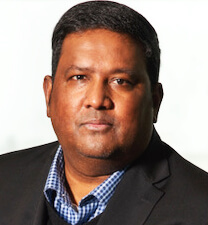
Dr. Mohan Babu
“These discoveries are based on an ongoing attempt to understand how bacterial and mammalian bioprocesses are coordinated in the living cell, and how pathways are regulated on the physical (protein interactions) and functional (gene dependencies) levels.”
The lab is led by renowned researcher Dr. Mohan Babu, who helps mould and train future researchers by sparking concise and meaningful conversations, encouraging critical thinking, and the pursuit of scientific truth. This enables a new generation of scientists to gain a position at the proactive end of research, develop the competencies needed to foresee problems at their early onset, and hone the necessary confidence to lead the innovation of sustainable solutions.
Dr. Aly oversees multiple projects in the Babu Lab to ensure each is conducted and completed in a timely fashion. With a heavy output of impactful findings, his role is anything but simple. “Junior scientists are often involved in multiple experiments, which is in the very fabric of the scientific process,” he explains.
Among the impactful studies conducted in the lab include Dr. Babu’s involvement in developing rapid COVID-19 salivary diagnostics for fast implementation at ports of entry and large congregations. He also played an invaluable role in developing COVID-19 therapeutics. His work perfectly complements the Faculty of Science’s reputation for tackling healthcare-related research topics of international interest.
Many other lab members are also engaged in life-changing research. Dr. Andrew Cameron and his team are focusing on microbial ecology and how the distribution of microbial communities in the human host can impact human health. “This area of research will ultimately pave a new dawn for developing innovative generations of correction therapies that can target some of the most devastating human diseases,” Dr. Aly explains.
Meanwhile, Dr. Tanya Dahms’s group focuses on studying the surface features of fungal and bacterial pathogens with cutting-edge microscopy techniques. Her team are also studying how microbial cell surface architecture responds to external stimuli, which is directly implicated in biofilm formation and natural chemotherapeutic resistance mechanisms.
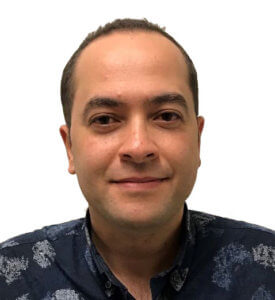
Dr. Khaled A. Aly
Dr. Babu and his team have also pioneered the development of genome-wide double knockout screenings in bacteria to annotate novel functions to unknown genes, and map pathway connectivity critical for bacterial bioprocesses. The result? The pinpointing of drug targets for novel antimicrobial therapy developments.
“These initiatives, among others in the Faculty of Science, can profoundly resolve the bottleneck of antibiotic or antifungal resistance mechanisms by offering new solutions of global impact,” Dr. Aly says.
Anyone is welcome to join them. Aspiring scientists who choose the University of Regina’s Faculty of Science will enjoy an endless array of opportunities to forge enduring relationships with other researchers and scientists during their undergraduate education in the halls, classes, and laboratories. This leaves them with memorable experiences that prepare career-ready graduates in the competitive job market.
“New researchers who feel interested in joining this vibrant community should expect to acquire remarkable, world-class training,” says Dr. Aly. “They will gain experience through a variety of research-intensive projects of immediate importance to Canada and the world around us, with no shortage of cutting-edge equipment and highly qualified personnel who will train junior researchers on their path to success.”
Follow the University of Regina on Facebook, Twitter and YouTube, and the Faculty of Science on Facebook, Twitter and Instagram

